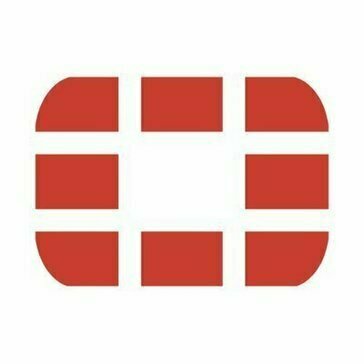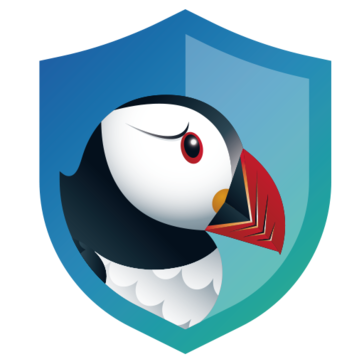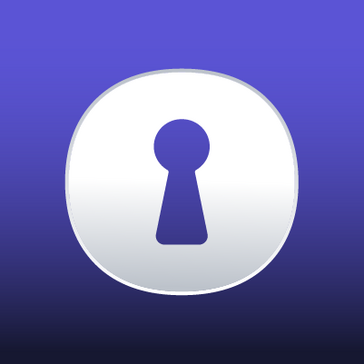Description

FortiIsolator

Symantec Web Security.cloud
Comprehensive Overview: FortiIsolator vs Symantec Web Security.cloud
Sure, let's delve into each of these products and examine their functionalities, target markets, market position, and key differentiators.
a) Primary Functions and Target Markets
FortiIsolator:
- Primary Functions: FortiIsolator is a browser isolation solution that aims to protect users from web-based threats by isolating web browsing sessions. It renders potentially malicious content in a secure environment and transmits only safe, sanitized content to users. This effectively prevents malware from reaching endpoint devices. Additionally, FortiIsolator provides protection against advanced threats like phishing attacks.
- Target Markets: The primary markets for FortiIsolator include enterprises of all sizes, particularly those with high-security needs such as financial services, healthcare, and government sectors. Organizations seeking to enhance their web security posture are the typical customers.
Symantec Web Security.cloud:
- Primary Functions: Symantec Web Security.cloud is a cloud-based web security service that provides comprehensive protection against internet threats, including malware, spyware, and phishing attacks. It offers real-time threat intelligence, URL filtering, and data protection to ensure that web traffic is secure.
- Target Markets: Like FortiIsolator, this product targets businesses of various sizes. However, it is particularly appealing to organizations that have embraced cloud-based solutions or are in the process of migrating to the cloud. Industries such as finance, healthcare, and retail, which deal with sensitive customer data, are significant markets.
b) Market Share and User Base
Market Share and User Base:
- FortiIsolator: Fortinet is a prominent player in the cybersecurity market, and while FortiIsolator itself may not be one of the most widely adopted solutions in the isolation category, Fortinet’s broad portfolio and reputation for security excellence contribute to its adoption. Exact market share figures may fluctuate, but Fortinet's broader security suite often provides an integrated approach that can attract a varied user base.
- Symantec Web Security.cloud: Symantec, acquired by Broadcom, has been long-standing in the cybersecurity field with a significant presence, especially before cloud-centric solutions took center stage. Following its acquisition, market dynamics around Symantec products have shifted, but they still hold a respectable share in enterprises that value robust, time-tested security solutions. Its cloud-centric approach appeals particularly to businesses transitioning to or fully operating in cloud environments.
c) Key Differentiating Factors
Key Differentiators:
-
Technology Approach:
- FortiIsolator employs a remote browser isolation technology that delivers a secure browsing experience by rendering web content outside the user’s environment. This unique capability isolates complete browsing processes, significantly reducing endpoint exposure to threats.
- Symantec Web Security.cloud, on the other hand, relies on cloud-based threat intelligence leveraging its Global Intelligence Network, which is vast and comprehensive, providing substantial threat visibility across diverse internet traffic.
-
Integration and Ecosystem:
- FortiIsolator is part of Fortinet’s Security Fabric ecosystem, which means it can integrate seamlessly with other Fortinet products like their firewalls, endpoint protection, and network access controls, providing a holistic security approach.
- Symantec Web Security.cloud benefits from Symantec's broad portfolio of security products, particularly around data loss prevention (DLP) and endpoint security. Its integration within Broadcom's suite has further led to enhanced capabilities across network and information security.
-
Deployment and Management:
- FortiIsolator focuses on offering straightforward deployment options with centralized management that aligns well with Fortinet’s management tools.
- Symantec’s cloud service emphasizes ease of use in cloud environments with minimal on-premises infrastructure, making it appealing for organizations prioritizing cloud-first strategies.
In summary, both FortiIsolator and Symantec Web Security.cloud provide effective web security capabilities but do so through different technological methods and infrastructure models. The choice between them typically depends on an organization’s existing security setup, preference for isolation versus cloud-based intelligence, and overall cybersecurity strategy.
Contact Info

Year founded :
Not Available
Not Available
Not Available
Not Available
Not Available

Year founded :
Not Available
Not Available
Not Available
Not Available
Not Available
Feature Similarity Breakdown: FortiIsolator, Symantec Web Security.cloud
When comparing FortiIsolator and Symantec Web Security.cloud, both of which are designed to provide web security and threat protection, it's important to analyze their core features, user interfaces, and any unique differentiators each product might have. Here's a breakdown based on these criteria:
a) Core Features in Common
-
Web Isolation:
- Both products offer web isolation capabilities to ensure web sessions are safe by isolating browsing activity, preventing web-based threats from reaching endpoints directly.
-
Malware Detection and Prevention:
- Both solutions focus on detecting and preventing malware, leveraging various techniques to identify and block malicious content from reaching users or IT systems.
-
Phishing Protection:
- They provide phishing protection mechanisms to identify and block phishing sites and attacks, helping to secure sensitive information from theft.
-
URL Filtering:
- URL filtering is a common feature, allowing administrators to block or allow access to certain websites based on predefined policies.
-
Threat Intelligence:
- Implementation of threat intelligence, usually involving databases or feeds of known threats, to enhance detection and protection capabilities.
-
Policy Management:
- Both products offer features for creating, managing, and enforcing security policies across user activities related to web access.
b) User Interface Comparison
- FortiIsolator:
- FortiIsolator typically integrates with Fortinet’s security ecosystem, and its interface often aligns closely with other Fortinet products. It offers a dashboard that emphasizes real-time threat monitoring and control capabilities, designed to provide straightforward navigation and ease of use for administrators familiar with Fortinet environments.
- Symantec Web Security.cloud:
- Symantec’s user interface tends to be cloud-centric, focusing on ease of deployment and management from a centralized cloud console. Its UI is designed for intuitive navigation, often praised for its comprehensive reporting features and ease of managing policies across distributed environments.
In general, FortiIsolator might appeal to those already embedded in the Fortinet ecosystem due to familiarity and streamlined integration, whereas Symantec's product leverages its longstanding cloud expertise and unified management approach.
c) Unique Features
-
FortiIsolator:
- Integration with Fortinet Security Fabric: FortiIsolator offers seamless integration with Fortinet’s suite of security products (such as firewalls, SIEM, and endpoint protection), enhancing its security postures across multiple vectors through a single, unified strategy.
- Operational Within Trusted Systems: FortiIsolator may provide unique cross-system automatic threat sharing and response options due to its tight integration with other Fortinet systems.
-
Symantec Web Security.cloud:
- Comprehensive Cloud-Native Security Platform: As part of the Broadcom portfolio, Symantec benefits from advanced analytics and threat prevention mechanisms derived from its robust cloud native security features.
- Global Threat Visibility: Symantec’s access to a large cloud-based threat intelligence network offers real-time threat analytics, providing users with updated threat data from across the globe.
Both products deliver robust web security, yet organizations may prefer one over the other based on existing infrastructure, specific feature benefits, or vendor compatibility.
Features

Not Available

Not Available
Best Fit Use Cases: FortiIsolator, Symantec Web Security.cloud
FortiIsolator and Symantec Web Security.cloud are both security solutions designed to help businesses protect themselves against web-based threats, but they cater to different use cases and business needs. Here's a breakdown of where each product fits best:
FortiIsolator
a) Best Fit Use Cases:
- Types of Businesses or Projects:
- Organizations Seeking Enhanced Security via Isolation: FortiIsolator is ideal for businesses that require high-level security to protect sensitive data from web threats. By isolating web sessions, it ensures that potentially harmful content never reaches the endpoint.
- Industries with High Compliance Needs: Sectors such as finance, healthcare, and government that must adhere to strict regulatory standards often benefit from the isolation capabilities, as they prevent data breaches and ensure compliance with regulations like HIPAA and GDPR.
- Projects Requiring Secured Web Browsing: Any project involving research or use of sensitive information over the internet where secure web browsing is essential.
d) Industry Verticals and Company Sizes:
- Financial Services: Protects client data from phishing attacks and other web-based threats while ensuring compliance.
- Healthcare: Enables secure web browsing to prevent exposure of patient information.
- Large Enterprises: Typically suited for larger organizations that can afford and manage advanced security solutions at scale to protect vast amounts of data and numerous endpoints.
Symantec Web Security.cloud
b) Preferred Scenarios:
- Cloud-Based Threat Protection Needs: Companies that depend heavily on cloud infrastructures and require a robust, cloud-native security solution to protect their web traffic would benefit.
- Businesses Looking for Comprehensive Web Filtering and Control Tools: Those that require URL filtering, malware scanning, and data loss prevention for web usage across their networks.
- Scenarios Demanding Extensive Analytics and Reporting: Businesses that need detailed visibility into web traffic and threat patterns for auditing and improving security posture.
d) Industry Verticals and Company Sizes:
- Small to Medium Enterprises (SMEs): SMEs that need cost-effective, scalable, and easy-to-deploy solutions benefit from a cloud approach, avoiding complex infrastructure.
- Education: Protects students and staff by filtering unwanted or harmful content and preventing data breaches.
- Retail: With many transactions involving personal customer data being handled over the internet, Symantec Web Security.cloud offers protections to minimize these risks for retailers.
- Any Industry Making a Transition to Cloud Infrastructure: As businesses migrate to cloud models, Symantec’s cloud-based protection becomes attractive for its seamless integration.
In summary, FortiIsolator is best suited for businesses and industries that need cutting-edge web session isolation for high-level security and compliance, especially those handling sensitive data on a regular basis. In contrast, Symantec Web Security.cloud is more tailored for companies seeking comprehensive, cloud-based security solutions with a strong emphasis on web filtering, analytics, and the seamless protection of cloud infrastructures.
Pricing

Pricing Not Available

Pricing Not Available
Metrics History
Metrics History
Comparing undefined across companies
Conclusion & Final Verdict: FortiIsolator vs Symantec Web Security.cloud
Conclusion and Final Verdict
When comparing FortiIsolator and Symantec Web Security.cloud, it's important to consider the overall value each product offers, their respective pros and cons, and user-specific recommendations for choosing between them.
a) Best Overall Value
FortiIsolator:
- Primarily focuses on secure web browsing through isolation technology, ensuring that web-based threats do not reach endpoints by executing web content remotely.
- Offers robust protection against browser-based threats with minimal impact on user experience.
- Highly suitable for organizations prioritizing zero-trust browsing environments.
Symantec Web Security.cloud:
- Provides a comprehensive suite of cloud-based web security services, including threat protection, data loss prevention, and compliance features.
- Caters to a broader range of security needs beyond just web isolation, making it a versatile tool for organizations seeking integrated web security solutions.
- Particularly valuable for enterprises looking for extended features such as content filtering and advanced threat protection.
Verdict: Considering all factors, the best overall value depends heavily on the specific needs of the organization. However, for integrated web security solutions with a broader range of security features, Symantec Web Security.cloud generally offers the best value. For organizations needing highly specialized web isolation features, FortiIsolator may pose better.
b) Pros and Cons
FortiIsolator Pros:
- Effective isolation of web content protects against a wide range of web-based threats.
- Reduces the risk of malware infections by executing content remotely.
- Simple to deploy and integrate with existing systems focusing on secure browsing.
FortiIsolator Cons:
- Limited scope compared to comprehensive web security suites.
- May not address all web security needs beyond isolation, such as phishing or data leakage.
Symantec Web Security.cloud Pros:
- Comprehensive web security offering with a wide range of features.
- Offers advanced threat intelligence and data loss prevention.
- Scalable solution suitable for organizations of various sizes.
Symantec Web Security.cloud Cons:
- Might be more complex to configure and manage due to its extensive features.
- Potentially higher costs for smaller organizations or those only needing isolation.
c) Recommendations
-
For Organizations Needing Web Isolation: If the primary requirement is to isolate web content effectively, FortiIsolator is the better choice. It offers specialized protection with simplicity in configuration and operation.
-
For Comprehensive Web Security: Organizations looking for an all-in-one web security solution should consider Symantec Web Security.cloud due to its extensive range of features, including threat protection, content filtering, and compliance capabilities.
-
Consider Hybrid Approaches: Companies with diverse needs could implement a hybrid approach, leveraging FortiIsolator for critical web sessions requiring isolation and using Symantec Web Security.cloud for broader security policies and additional features.
Ultimately, the choice should be driven by the specific security requirements, budget considerations, and the existing infrastructure of the organization. Understanding these factors will guide the decision towards the solution that best aligns with operational needs and security objectives.
Add to compare



